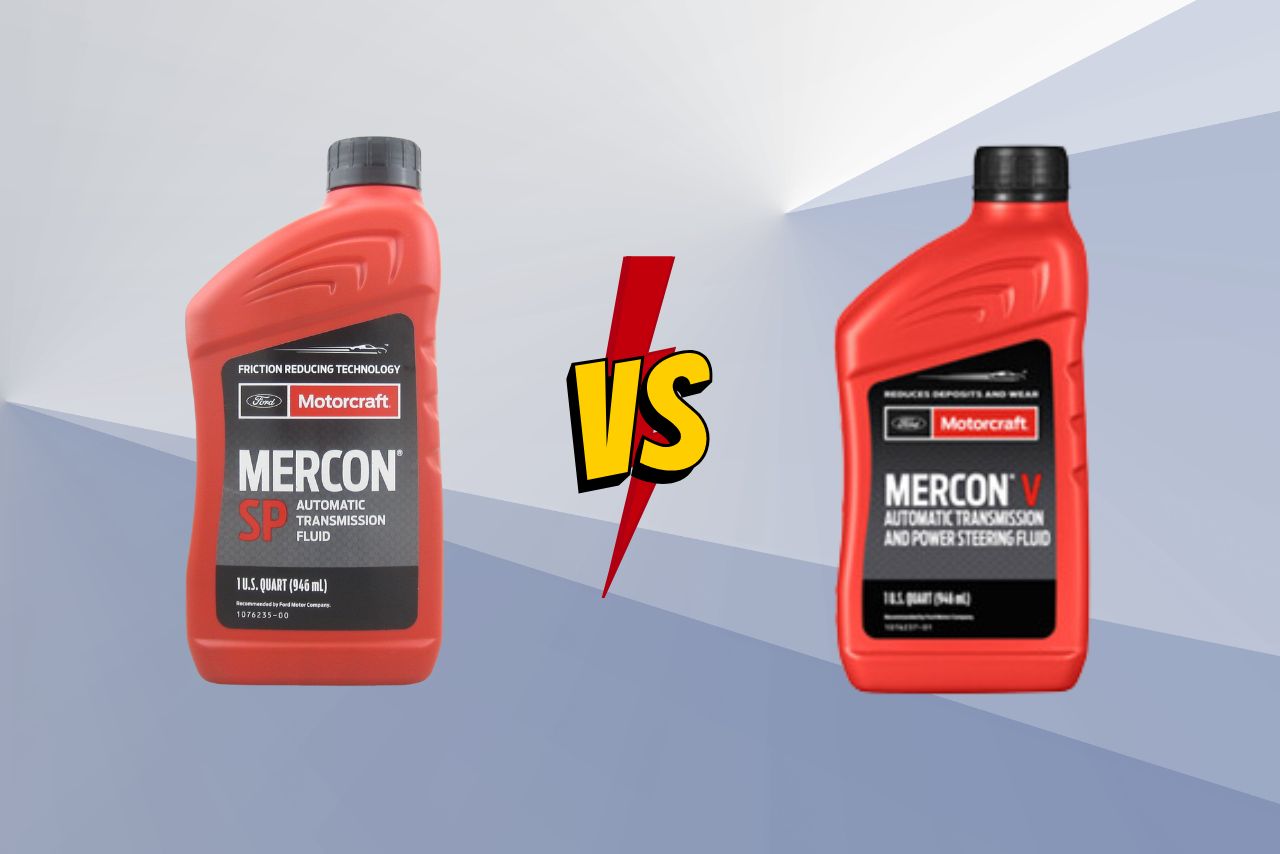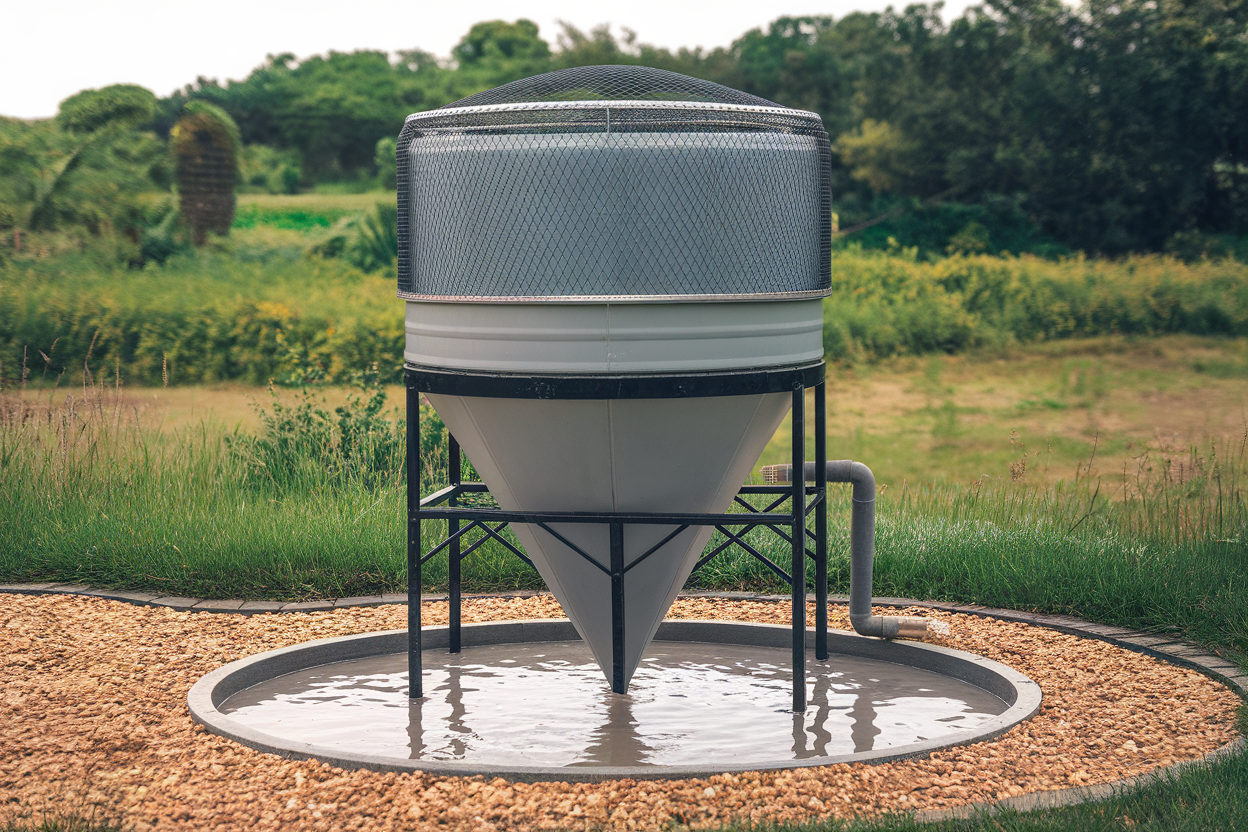In the debate between Mercon Vs Mercon V, Ford initially cautioned against using Mercon V in Mercon-equipped transmissions. However, this changed when Mercon V became backward compatible.
While Mercon V is often perceived as having a lighter base stock, viscosity data shows it to be slightly heavier. The main distinction lies in enhanced friction modifiers in Mercon V, making it not recommended for clutch-type transfer cases.
Recommendations: For E4OD applications, upgrading to newer parts (1995-up) is suggested. Mercon V and Mobil 1 ATF are reliable fluids, with Mercon V demonstrating longer life due to additional additives. It’s crucial to follow viscosity requirements, and considering modern alternatives like Amsoil ATF or Chevron MD3 with appropriate viscosity can be beneficial.
User Experiences: Users report success with Mercon V in various applications, emphasizing the importance of frequent fluid changes. Mercon LV is mentioned as a substitute, and while Dex/Merc is widely available, ensuring compatibility with the specific transmission is essential. Redline D4, when added in a 1/3 ratio to Mercon, can enhance friction modifiers and provide firm shifts.
Here’s a one of our reader who have Chooses Mercon over Mercon V due to Friction issues:

Table of Contents
What is Mercon?
- Premium-quality ATF for Ford, Lincoln and Mercury transmissions
Mercon is a type of automatic transmission fluid (ATF) that is specifically designed for use in Ford vehicles found In 1987.
It was developed by the Ford Motor Company to meet the specific needs of Ford transmissions, which often require a specialized blend of ATF to ensure proper performance and longevity.
Mercon is unique in that it is formulated with special additives and detergents to reduce friction and provide smooth, consistent shifts. It also contains anti-wear agents to protect transmission components from wear and tear.
Mercon is available in several different grades and formulations, depending on the specific requirements of different Ford vehicles.
Overall, Mercon is an essential component in maintaining the performance and longevity of Ford transmissions, and it is recommended that drivers use only the appropriate type of Mercon ATF for their vehicles.
Can You Change Oil Filter Without Changing Oil? (REVEALED!)
Compatible vehicles and types of transmissions that use Mercon ATF:
Mercon automatic transmission fluid (ATF) is a popular and widely used transmission fluid that is compatible with a range of vehicles and types of transmissions.
It is particularly well-suited for use in Ford vehicles with automatic transmissions, although it can also be used in other makes of vehicles and transmissions.
The Mercon ATF is designed to provide superior friction and wear protection, as well as optimum shifting performance, making it an ideal choice for owners of vehicles looking to maintain their automatic transmissions in top condition.
Whether you drive a Ford, Lincoln, Mercury, or other vehicle brand, if your vehicle requires transmission fluid, you can rely on Mercon ATF to provide the performance and protection that your vehicle needs to operate at its best.
Advantages and disadvantages of using Mercon ATF:
Mercon ATF, or Automatic Transmission Fluid, is a specialized lubricant designed to protect and enhance the performance of automatic transmissions in vehicles.
Advantage
The advantages of using Mercon ATF includes its ability to reduce friction within the transmission, thus reducing wear and tear on its components. It also helps to maintain consistent smooth shifting, which can lead to improved fuel efficiency.
Disadvantage
Not all vehicles are compatible with Mercon ATF, and using it in a vehicle that is not designed for it can cause damage to the transmission.
What is Mercon V?
- Motorcraft MERCON V is a premium-quality automatic transmission fluid
- recommended by Ford Motor Company for use in Ford, Lincoln and Mercury vehicles that require either MERCON V or MERCON type fluid
- Do not use in applications where MERCON SP, MERCON LV, continuously variable chain type transmission fluid, Motorcraft premium automatic transmission fluid, FNR5 automatic transmission fluid or Type-F automatic transmission fluid is recommended
- Do not use in transfer cases where MERCON ATF was previously recommended
- Motorcraft MERCON V is suitable for use as a hydraulic oil in a wide variety of industrial applications that call for an ISO 46 or SAE 20W viscosity grade hydraulic oil
Mercon V is a type of automatic transmission fluid (ATF) that is used in cars and other vehicles with automatic transmissions. It is made by the Ford Motor Company and was first introduced in 1997 as an upgrade to the previous Mercon ATF.
Mercon V is compatible with a wide range of Ford vehicles, including those with four, five, and six-speed automatic transmissions.
It is also compatible with some non-Ford vehicles, although drivers should always check with the manufacturer or their mechanic to ensure that Mercon V is appropriate for their car.
Some of the key features of Mercon V include its ability to reduce transmission wear and tear, smooth shifting and improved fuel efficiency. It also offers improved thermal stability which helps to prevent the fluid from breaking down when it gets hot.
Overall, Mercon V is a highly-recommended automatic transmission fluid that provides top-notch performance and can help extend the life of a vehicle’s automatic transmission.
Does Gumout Work? (Is it Really Worth It? Pros & Cons!)
Compatible vehicles and types of transmissions that use Mercon V ATF:
Mercon V is compatible with most Ford transmissions built after 1997 and also with some non-Ford transmissions, such as those used in General Motors and Toyota vehicles.
However, it’s important to note that not all vehicles are compatible with Mercon V, so it’s crucial to check your owner manual before making a purchase.
In terms of cost, Mercon V is generally more expensive than regular Mercon ATF. However, the benefits of using Mercon V outweigh its cost for high-performance vehicles or those that require a more durable fluid.
Advantages and disadvantages of using Mercon V ATF:
Advantages:
Improved performance:
Mercon V ATF is designed to provide improved performance compared to previous versions of Mercon ATF.
Better compatibility:
It is compatible with a wide range of automatic transmissions, including those that require earlier versions of Mercon ATF.
Longer lifespan:
This ATF has a longer lifespan than many other types of ATF, which can help reduce maintenance costs and improve reliability.
Improved shift quality:
Mercon V ATF can help improve shift quality and reduce transmission slippage, leading to a smoother driving experience.
Disadvantages:
Higher cost:
Mercon V ATF can be more expensive than other types of ATF, which can be a disadvantage for those on a tight budget.
Limited availability:
Some older vehicles may require earlier versions of Mercon ATF that are no longer available, making it difficult to find the right fluid.
Not suitable for all vehicles:
While Mercon V ATF is compatible with a wide range of automatic transmissions, it may not be suitable for all vehicles. It is important to check your vehicle’s owner’s manual or consult with a mechanic before using this ATF.
Differences Between Mercon Vs Mercon V ATF:
| Image | Title | Model | Prime | Buy |
|---|---|---|---|---|
| Motorcraft XT6QSP-12PK Mercon Automatic Transmission Fluid (1Qt) | XT6QSP-12PK | Prime | View On Amazon | |
| Ford Genuine XT-5-5QM MERCON-V Automatic Transmission and Power Steering Fluid – 5 Quart | XT-5-5QM | PrimeEligible | View On Amazon |
Prices and images pulled from the Amazon Product Advertising API on:
If you’re looking to buy automatic transmission fluid (ATF) for your vehicle, you may be wondering what the differences are between Mercon and Mercon V ATF.
Mercon ATF was introduced by Ford in the 1980s and is suitable for use in older Ford vehicles. Mercon V ATF, on the other hand, is a newer formulation that was released in the late 1990s and is designed to work with newer Ford vehicles.
One of the main differences between the two is that Mercon V ATF has a higher viscosity index, meaning it can perform more effectively in a wider range of temperatures.
You can see the below image to compare Mercon Vs Mercon V ATF:

Additionally, Mercon V ATF has superior friction durability, which means it provides better protection against wear and tear. If you’re unsure which ATF is right for your vehicle, be sure to check your owner’s manual or consult with a professional mechanic for guidance.
Can Car Air Filters Be Cleaned and Reused? (We Tried it Out!)
Why it’s important to use the right type of ATF for your vehicle?
Using the wrong type of ATF for your vehicle can lead to serious transmission problems and costly repairs.
Each type of fluid is formulated with specific additives that are designed to work with certain types of transmissions, so using the wrong one can cause damage or even complete failure.
Additionally, using an ATF that doesn’t meet the manufacturer’s specifications can void your vehicle’s warranty.
Always refer to your owner’s manual or consult with a professional mechanic to determine which type of ATF is right for your vehicle and how often it should be changed.
Regular maintenance of your transmission, including changing the ATF at recommended intervals, can help prolong the life of your vehicle and prevent costly repairs down the road.
Can Mercon V be used in place of Mercon and vice versa?

While Mercon V is a newer and more advanced formulation than regular Mercon ATF, it’s important to note that they are not interchangeable.
If your vehicle requires Mercon ATF, using Mercon V can cause damage or even complete failure of the transmission.
Similarly, if your vehicle requires Mercon V ATF, using regular Mercon can lead to diminished performance and reduced lifespan of the transmission.
Choosing the right type of ATF for your vehicle is crucial for maintaining optimal performance and avoiding expensive repairs.
While Mercon V may be more expensive than regular Mercon ATF, its benefits in terms of improved performance, better compatibility, longer lifespan and smoother shift quality make it worth considering for high-performance vehicles or those that require a more durable fluid.
Why Choose Mercon Over Mercon V?
- Premium-quality ATF for Ford, Lincoln and Mercury transmissions
Mercon and Mercon V are two popular automatic transmission fluids (ATF) manufactured by Ford Motor Company. While Mercon and Mercon V both provide excellent performance, there are some important differences.
One of the main reasons to choose Mercon over Mercon V is compatibility. Mercon is recommended for use in pre-1997 automatic Ford transmissions and is not compatible with the newer Mercon V formula.
Additionally, Mercon V provides better performance at high temperatures and shear stability, making it the preferred choice for newer Ford transmissions.
However, Mercon is less expensive than Mercon V, making it a budget-friendly option for those with older Ford vehicles.
Ultimately, the decision between Mercon and Mercon V will depend on your specific vehicle and transmission needs. It is important to consult your vehicle’s owner manual to determine the appropriate type of ATF to use.
Why Choose Mercon V Over Mercon?
Mercon V is the advanced version of Mercon transmission fluid. It is a synthetic blend that has been specifically formulated to withstand more rigorous driving conditions.
While the original Mercon is suitable for most Ford vehicles that require automatic transmission fluid, Mercon V is designed for newer models that require a more advanced fluid in terms of heat resistance, frictional durability, and fluidity in cold temperatures.
Moreover, Mercon V has a longer lifespan than Mercon. It can last up to 150,000 miles, which is 50,000 miles more than Mercon.
Also, the composition of Mercon V provides better protection to the internal components of the transmission, ensuring longevity.
Furthermore, it meets or exceeds the standards set by Ford for transmissions, which means that it provides better overall performance compared to its predecessor.
Hence, for those who own a newer model vehicle and are looking for a transmission fluid that provides better lubrication, heat resistance, and durability, Mercon V is the preferred choice over Mercon.
The Pros and Cons of Mercon:
What we like
- 1. Excellent performance – Mercon ATF provides excellent performance in terms of shifting, smoothness, and durability. It is designed to work under extreme conditions, making it ideal for heavy-duty use.
- 2. Wide availability – Mercon ATF is widely available in most auto parts stores, making it easy to find and purchase.
- 3. Compatibility – Mercon ATF is compatible with a wide range of Ford vehicles, so you can use it in multiple cars without any issues.
What we don’t like
- 1. Not suitable for all vehicles – While Mercon ATF is compatible with most Ford vehicles, it may not be suitable for other makes and models. Check your vehicle’s owner’s manual to ensure that Mercon ATF is recommended.
- 2. Limited use – Mercon ATF is not suitable for use in continuously variable transmissions (CVTs) or dual-clutch transmissions (DCTs). Using it in these types of transmissions could cause damage.
- 3. Cost – Mercon ATF is generally more expensive than other types of ATF, which could be a drawback if you’re on a tight budget.
The Pros and Cons of Mercon V:
What we like
- 1. Improved Shift Quality: Mercon V provides smoother and quicker shifting than its predecessors, making for a more enjoyable driving experience.
- 2. Longer Service Life: With a longer service life than its predecessors, Mercon V can help reduce maintenance costs and extend the life of your transmission.
- 3. Better Temperature Performance: Mercon V has improved temperature performance over earlier versions, making it more resistant to thermal breakdown and extending transmission life.
- 4. Enhanced Friction Durability: The friction durability of Mercon V is higher than previous versions, resulting in less slippage and better overall performance.
What we don’t like
- 1. Compatibility Concerns: While Mercon V is backward-compatible with earlier versions, it may not be compatible with all vehicles. Always check your vehicle owner’s manual to ensure compatibility before using.
- 2. Price: Mercon V can be more expensive than other types of transmission fluid, which may be a concern for some drivers.
- 3. Limited Availability: While Mercon V is widely available, it may not be as readily available as other types of transmission fluid in some areas.
- 4. Not Recommended for Some Applications: Mercon V may not be recommended for certain types of transmissions or vehicles, so it’s important to check your owner’s manual before using.
In My Opinion Which One is Right for Your Vehicle?
In my opinion, the choice between Mercon and Mercon V depends on the make and model of your vehicle. Mercon is an older type of automatic transmission fluid that is compatible with older Ford vehicles.
It has a lower viscosity, which means it flows more easily through the transmission.
On the other hand, Mercon V is a newer type of ATF that has improved properties over the original Mercon. It has a higher viscosity, which provides better protection against heat and wear.
Mercon V is compatible with most Ford vehicles from 1997 onwards. If your vehicle is newer or has been serviced with Mercon V in the past, it’s best to stick with that type of ATF.
However, if your vehicle is older or has been serviced with Mercon in the past, it’s advisable to continue using that type of ATF to avoid any potential compatibility issues.
I would highly recommend you to watch this video:
Can I Use Mercon v Instead of Mercon?
Yes, you can use Mercon V as a substitute for Mercon. Ford initially advised against this, but later declared Mercon V to be backward compatible.
However, it’s essential to follow manufacturer recommendations and ensure that the specific transmission is compatible with Mercon V.
Regular fluid checks and adherence to viscosity requirements contribute to optimal performance.
Conclusion and final thoughts 💭
Both Mercon and Mercon V have their strengths and weaknesses. The choice between them depends on the make and model of your vehicle, as well as your driving habits and environment.
While Mercon is older and less advanced than Mercon V, it may still be the best choice for certain vehicles. On the other hand, Mercon V provides improved performance, durability, and compatibility with newer Ford models.
Regardless of which type of ATF you choose, it’s important to follow your vehicle manufacturer’s recommendations for fluid type and change intervals.
Using the wrong type of fluid or neglecting to change it regularly can lead to transmission damage, reduced performance, and higher repair costs in the long run.
If you’re unsure which type of ATF is right for your vehicle, consult a professional mechanic or refer to your owner’s manual for guidance.











Leave a Reply